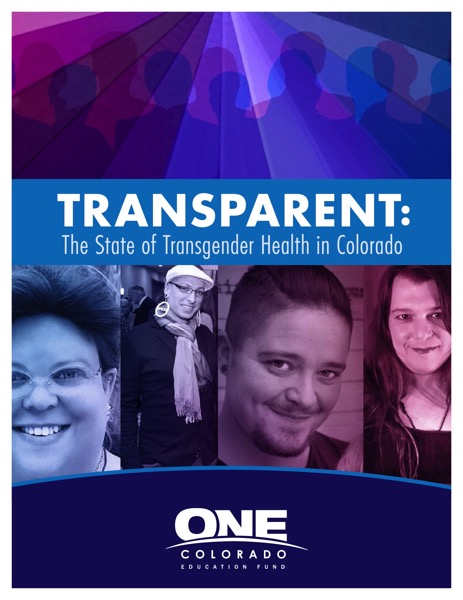This is a new report published by One Colorado (@One_Colorado) that’s a non-randomized survey of 417 transgender and gender nonconforming Colorado residents. Even though it’s not randomized, that’s a pretty large sample size for this population. A few findings that caught my eye:
Survey participants reported being much more likely to have a college degree, yet were more likely to be out of work or living in a low-income household than the general population, leading to shocking income inequality for transgender Coloradans.
The Dawn of Primary Care for People who are Transgender
In the health space I noticed some metrics about the impact of having regular primary care that’s inclusive (which 61% of respondents report, contrasting to 88% of physicians who reported comfort in a previous survey):
The data regarding mental health for this population tracks what I have seen in previous surveys in terms of high suicide rate attempt – Just Read: The exceptionally higher suicide attempt rate for trans* persons who have sought medical care | Ted Eytan, MD – although the questions in this survey and the one before it are slightly different. It isn’t known for sure what aspects of medical care may improve mental health, it’s just known that there are significant problems that are not being addressed.
The “dawn of primary care” part is the fact that access to medical care is now being measured, and is measurable, because of Colorado’s leading position in assuring medically necessary care for the LGBT community, much like Washington, DC (have to put in a plug for the #epicenter).
The Colorado Independent (@coindependent) story on this report mentions the example of a patient who know has regular (and comprehensive medical) primary care through… Kaiser Permanente Colorado (@KPColorado), where it denied at the VA (see: Thanks for publishing my photo and a bright spot in transgender person health, Colorado Independent | Ted Eytan, MD)
The second part is the fact that with regular primary care, a lot more appropriate medical care for total health will be administered, so “transgender person health care” will just be “health care.” For example, conventional wisdom is that every transgender man should have a hysterectomy, because it is unlikely that they will receive regular cervical cancer screening, because of a host of factors. This is partially based on inadequate access to care and inappropriate treatment in the health care system, and may change.
As more people are able to live, there are more people who they’ll know / Gallup – behind the times….
Gallup has been tracking this question for 30 years:
Do you have any friends or relatives or coworkers who have told you, personally that they are gay or lesbian?
As predicted, the numbers have flipped, the the majority of Americans currently “do.” (See this nice graph over at The Economist)
The Gallup (@Gallup) behind the times part is that the question excludes people who are transgender, and I’d argue, most of Gallup’s site does – the heading of this section is “same-sex relations” and the URL is “gay-lesbian rights”, where’s the rest of LGBT?
Even though we don’t have the data today (I hope we’ll start collecting it), it’s likely that we’ll see a same trend in terms of knowing someone who is transgender. This will be accelerated by access to medical care because more people will get to live in their identity, in good health, with employment, and the rest will be history….
I did a quick look and I actually can’t find a poll question anywhere that asks “Do you currently know someone who is transgender?” – if anyone out there knows of one please contact me or add a comment, thank you! And thanks One Colorado for documenting the state of health and its future improvement.


2 Comments
Hi Ted,
Thank you, as always, for being a beacon — you shed light so we can all navigate better!
My colleagues at the Pew Research Center included questions about trans identity in their survey of LGBT Americans.
Here’s the full report:
http://www.pewsocialtrends.org/2013/06/13/a-survey-of-lgbt-americans/
And here’s a note on the 5% LGBT respondents who identify primarily as transgender:
http://www.pewsocialtrends.org/2013/06/13/a-survey-of-lgbt-americans/#a-note-on-transgender-respondents
The note refers to a “Gates, 2011” report that may also have useful data, but I haven’t dug out the footnote for it yet.
Susannah,
I remember this report – I think Pew Research Center did a good job of being inclusive and accurate at the same time. I think the 2011 numbers are also fairly good. Thanks for taking a look and being an ally for change,
Ted